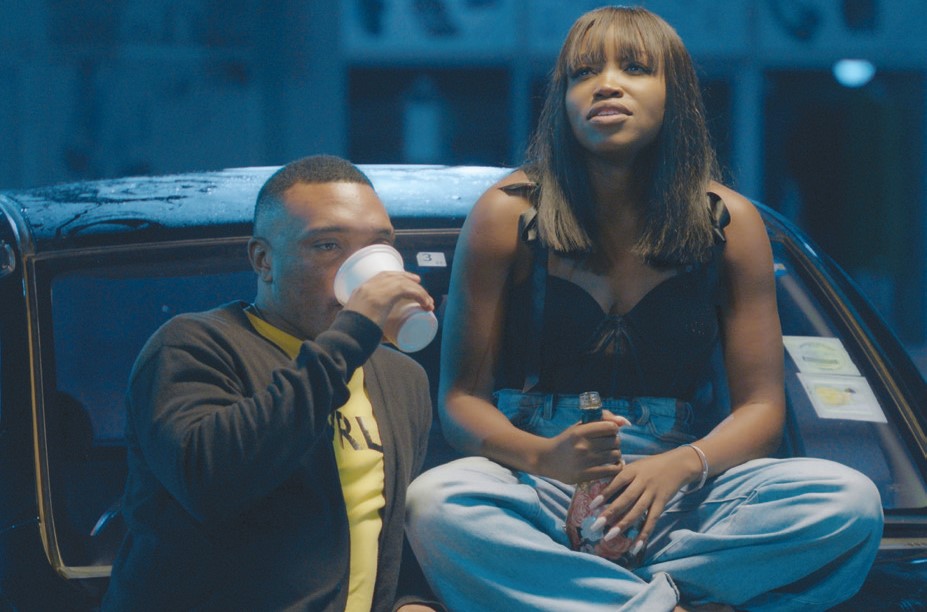Poetry Africa explains locals concerns
 They came, shared their sublime musings and left behind the same old story: arguably the epicentre of spoken word performances at Blantyre Arts Festival (BAF), Poetry Africa does not seem to have enough space for locals.
They came, shared their sublime musings and left behind the same old story: arguably the epicentre of spoken word performances at Blantyre Arts Festival (BAF), Poetry Africa does not seem to have enough space for locals.
The popularity of the multinational cast from the Centre for Creative Arts at the University of KwaZulu Natal (UKZN), South Africa is evident in the powerful performance arc that threads through its 16 years of existence.
But when its bus—bringing along the musical act of South Africa’s Pedro Espi-Sanchis and Modosini, Kenya’s Philo Ikonya, Ghana’s Nii Ayikwei  Parkes and Jamaica’s D’bi Young—parked at the French Cultural Centre in Blantyre on Saturday, the audience was left wondering why there were only two Malawian reps, Nyamalikiti and Chigo Gondwe.
The duo’s itinerary started and ended the same night, meaning they will not be part of the tour of Zimbabwe, Botswana and Cape Town on the road to the ultimate showcase in KwaZulu Natal next weekend.
The seemingly contemptible ratings of local performers were further exposed when Chigo, who last week spoke her mind against inadequate show duration encountered in her three Poetry Africa appearances, was forced to squeeze her lengthy poem They Have Come to Colonise Us Again into a five minute slot. What followed was a familiar story—Chigo had to fast-forward her moving story of a country snared under the foot of Western cultural imperialists who use aid, technology and repressive promises to push their agenda.
Equally restricted was Nyamalikiti who recited I Don’t Wanna See You Again, a love story that failed. In an interview after the performance, Nyamalikiti acknowledged that he had to downsize his new release to fit the time allotted to him. Earning claps here and wows there, the offering at times lacked a thread of continuity that the pensive elements in the audience were left wondering how a love story that started before the Kanda Bongoman-generation lovebirds had learnt the alphabet hit the rocks.
So worrying was the trend, considering that the six poets who flew in on Saturday afternoon were accorded stage duration at least four times longer than the locals got.
Yet, it came through as just another fulfilment of the worrying trend locals lamented last week—albeit Chigo abandoned her promise to speak out her mind during the performance.
‘Locals are already known’
In an interview, UKZN director of creative arts Peter Rorvik said the locals were given less time than the touring artists because they are already known to the audience.
“We know Malawi has talent, but we wanted to expose the local audience to poets they have never seen before. There are many poets, but we can only take a few. Poetry is subjective and the selection process can be subjective. However, we strive to put together a balanced team with an array of talent,†said Rovirk, promising they may consider touring with Q Malewezi who missed this year’s edition.
In the incoming poets’ abundant time, the only solid recognition of Malawian arts came when Sanchis recognised the elite place of the late Daniel Kachamba and Kwera in the history of music. He likened the hand-made whistle that underlie his beat to the paw-paw leaf stalk which gave birth to Vuvuzela—the single most important blowing instrument that pumped the Fifa World Cup vibe in South Africa two years ago.
Later, the versatile Sanchis paired up with Modosini to give the audience a glittering glimpse of the folk instruments and virgin touch of South African beat, epitomised by the likes of Miriam Makeba and Brenda Fassie.
However, it was Kenya’s exiled poet Philo Ikonya who earned raving applause which she described as warmer than the lights which went off just before she took centre stage. Like the offering of Chigo, Parkes and Young, the Norway-based poet dazzled with her passion and figurative calls for freedom and peace—but not without recognising the irreplaceable place of women in the making of a free world. But Jamaican Young was the toast of the night with her inimitable dub calls for a revolution if Africa must break the jinx of colonial vestiges. So passionate was she about the continent that she performed bare-footed symbolising a spiritual reconnection with the continent she calls home.





